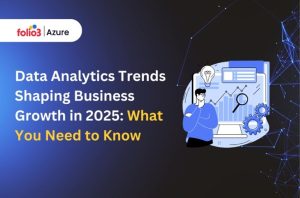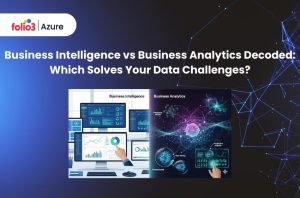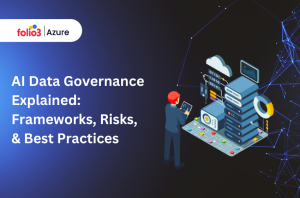Table of Contents
ToggleIn today’s data-driven world, the old adage “knowledge is power” has never rung truer, especially for businesses. However, raw data is just the beginning. To transform piles of numbers and statistics into actionable insights, business dashboard software is crucial. But with a myriad of options available in the market, how do you pick the right one for you?
Small businesses, entrepreneurs, data analysts, BI developers, data enthusiasts, CEOs, and CTOs – this post aims to guide you through the process of selecting the ideal dashboard software for your specific needs.
Overview
Effective decision-making within a competitive business environment requires access to real-time, digestible data. Business dashboard software provides a consolidated and customizable view of various business metrics, often in the form of charts, graphs, and tables, which can be critical for understanding performance, spotting trends, and fostering transparency across the organization.
But not all dashboards are created equal. They differ in terms of usability, data integration, visualizations, and collaboration features, to name a few. This post will outline a comprehensive checklist to ensure that you select a business dashboard software that’s a perfect match for your company’s needs, helping to improve operational efficiency and bottom-line results.
What Are Business Dashboard Software?
Before we deep-dive into the selection process, it’s essential to understand what business dashboards are and the critical role they play.
Business dashboard software enables users to visually represent complex datasets in an easily understandable way. It offers various visualizations that help users track key performance indicators (KPIs) and make informed decisions.
These software tools are designed to be user-friendly and usually involve drag-and-drop interfaces to build custom dashboards. They can integrate with several data sources, from Google Analytics to your in-house CRM system, providing a holistic view of your business metrics on a single screen.
Why Are Dashboards Important for Your Business?
Dashboards are central to a proactive strategy in dealing with data. They turn data into information and information into actionable business insights. For any company, this tool is invaluable not only for analysis but also for predictive capabilities.
By regularly checking your business dashboard, you can quickly understand the state of your business, key trends, potential challenges, and opportunities. They enable an agile response to market changes and internal performance, keeping everyone on the same page and moving in the right direction.
Benefits of Business Dashboard Software
1. Easy to Read
One of the key benefits of business dashboard software is their visual nature. Humans process visuals much faster than text and numerical data, and a well-designed dashboard significantly improves data comprehension.
2. Transparency
When your business’s critical metrics are made transparent and easily accessible to all team members, it promotes a culture of data-driven decision-making and accountability.
3. Identify Trends
Trends often hide within the dataset. Dashboards help to spot these trends, whether they’re positive opportunities or potential threats, allowing businesses to act timely and accordingly.
4. Business Monitoring
Real-time dashboards keep you in the loop with what’s happening in your business right now. You don’t need to wait for weekly or monthly reports; instead, you can react in real time.
5. Optimize Performance
By tracking various performance metrics, you can identify areas for improvement and optimize resources and strategies for maximum efficiency and effectiveness.
Things to Consider When Choosing a Business Dashboard Software for Your Business
Choosing the right business dashboard software can be a formidable yet rewarding task. Here are vital aspects to consider before you make your decision:
1. Integrations
Your dashboard software must be able to seamlessly integrate with the various applications and platforms where your data resides. Whether you’re pulling data from spreadsheets, databases, or cloud services like Salesforce or Shopify, look for a tool with a robust ecosystem of integrations.
2. Understands Human Cognition
The best dashboard software not only visualizes data but does so in a way that naturally aligns with human cognitive processing. This includes using well-established chart types like bar graphs for comparisons and line graphs for trends.
3. Customization
Every business is unique and will have differing requirements for the visual representation of its data. Customization options are essential. Look for software that allows you to tweak everything from colors and fonts to the specific metrics being tracked and how they’re grouped.
4. Collaboration
An influential dashboard should enable collaboration. This means the ability to share dashboards with multiple team members, create alerts and notifications based on data changes, and potentially even have discussions directly within the platform.
5. User Experience
A beautiful dashboard is worthless if your team can’t figure out how to use it. Invest in a dashboard software with an intuitive user interface and a clear learning curve. The faster your team can start using the software, the faster you’ll see a return on your investment.
6. Automated Refreshing
Your data is only as good as it is current. Automated data refreshes at regular intervals ensure that everyone has access to the latest data trends and insights.
7. Automated Reports
Look for a dashboard tool that can also generate automated reports. This feature can save you significant time and ensure that stakeholders who may not log in to view the dashboard regularly still receive up-to-date information.
Implement the Right Dashboard Software with Folio3
Folio3 is a leading provider of dashboard development and customization services. For a tailored analytics solution that fits perfectly with your business needs, look no further.
Whether you’re a startup, a growing small business, or an established company, choosing the right business dashboard software is vital for your operations. Implementing a robust dashboard software can help streamline your data analysis process, leading to better decision-making and business outcomes.
By following our comprehensive checklist and partnering with experienced professionals at Folio3, you’re one step closer to harnessing the power of data in your business — a strategic move that’s sure to pay dividends in the long run.




